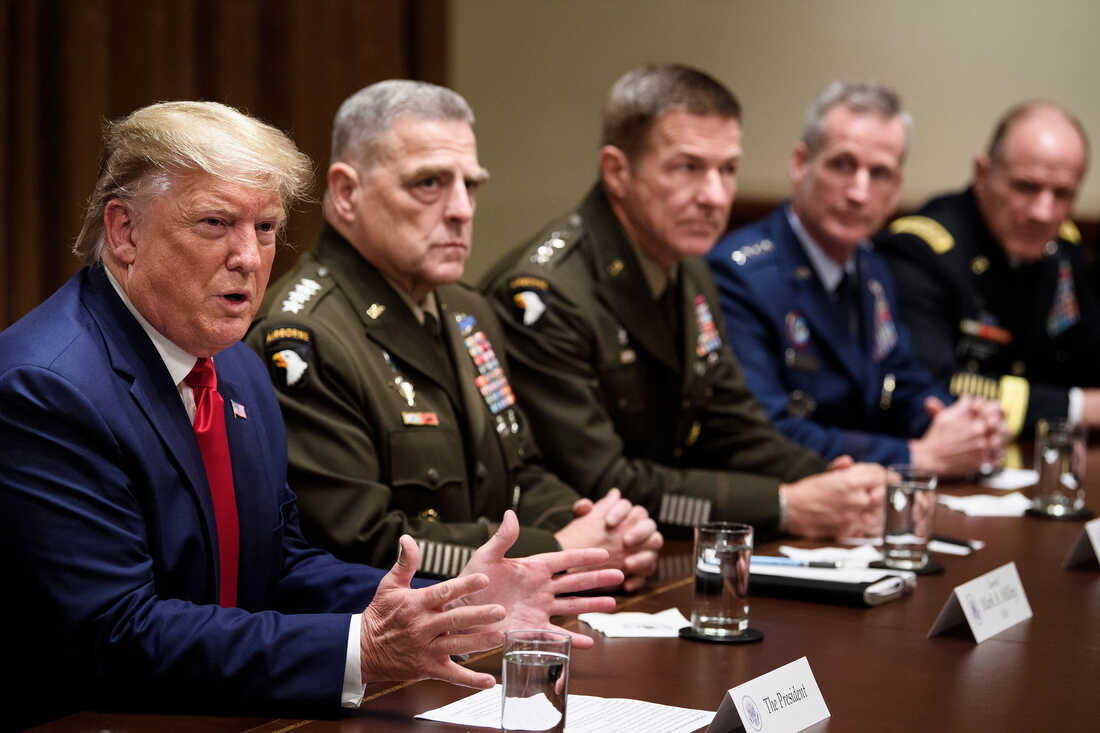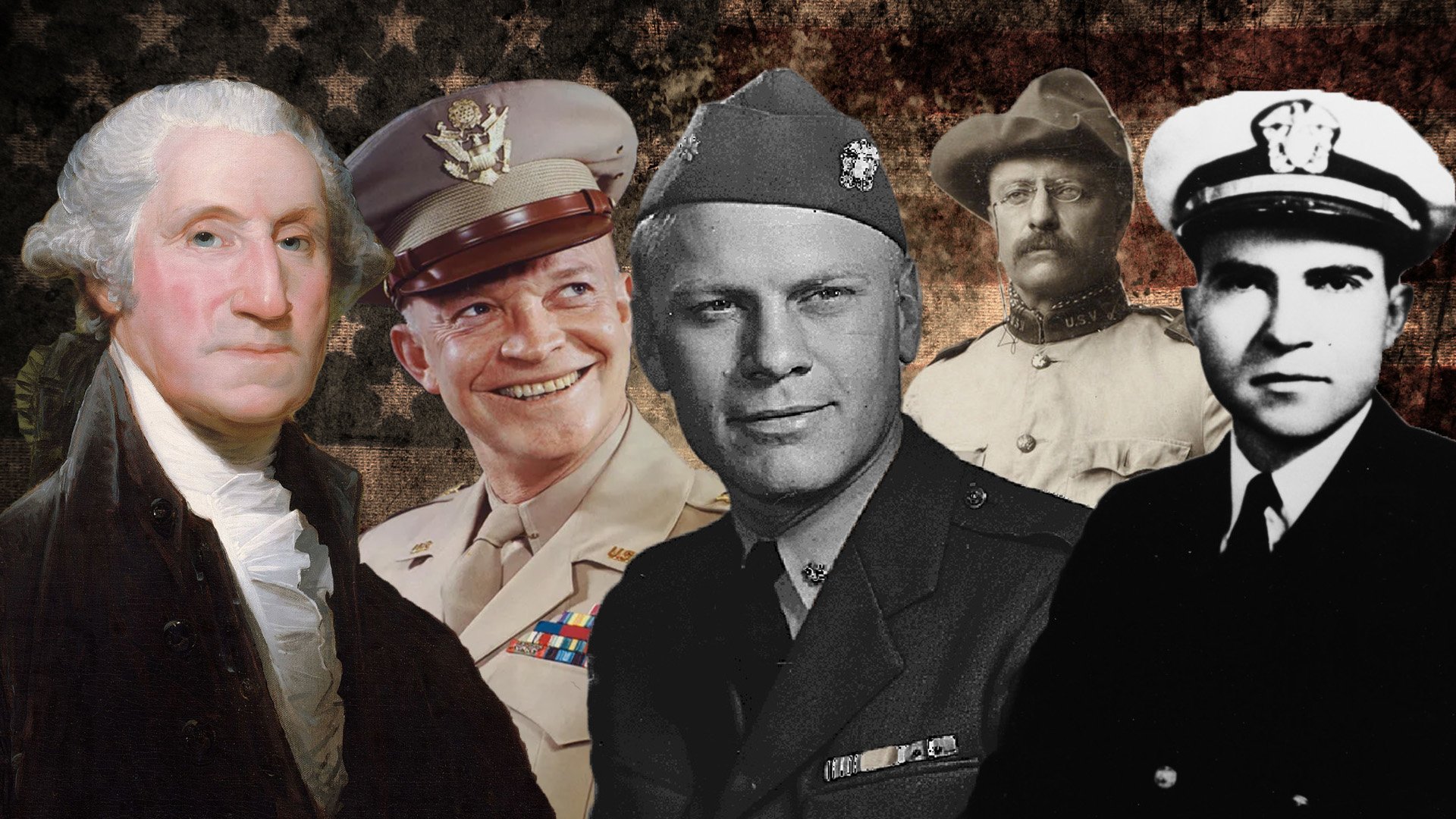The question of how many U.S. presidents did not serve in the military is a thought-provoking one, especially in light of the nation's history and the role of military service in American politics. Understanding the military background of U.S. presidents can provide insights into their leadership styles and decision-making processes. This article will delve into the history of U.S. presidents, examining their military service or lack thereof, and discussing the implications of these experiences on their presidencies.
The landscape of American politics has frequently been shaped by the experiences and backgrounds of its leaders. For many presidents, military service has been a rite of passage, a proving ground that informs their governance. However, a significant number of presidents have entered the highest office without any military experience. This article aims to clarify the statistics surrounding this phenomenon while providing a deeper understanding of the impact of military service on presidential leadership.
In this comprehensive exploration, we will analyze the biographies of U.S. presidents, highlight those who did not serve in the military, and discuss how their backgrounds shaped their presidencies. By the end of this article, readers will gain a clearer picture of how military service, or the absence of it, has influenced the presidency throughout American history.
Table of Contents
- Historical Context of Military Service Among Presidents
- List of Presidents Who Did Not Serve in the Military
- Impact of Military Service on the Presidency
- Notable Presidents Without Military Experience
- Biographical Data of Presidents Without Military Service
- Public Perception of Non-Military Presidents
- Conclusion
- Call to Action
Historical Context of Military Service Among Presidents
Throughout American history, military service has been a common background for many of its presidents. From George Washington, who led the Continental Army during the Revolutionary War, to Dwight D. Eisenhower, who commanded Allied forces in Europe during World War II, military experience has often been seen as a valuable asset in leadership. Historically, the military has played a crucial role in defining a president's character and capabilities.
However, the necessity of military service for presidential candidates has been a subject of debate. Some argue that military experience fosters discipline, leadership, and crisis management skills, while others contend that effective leadership can come from various backgrounds, including politics, law, and business. As the nation evolved, so did the criteria by which presidents were judged, leading to a growing number of non-military presidents.
List of Presidents Who Did Not Serve in the Military
As of 2023, a total of 15 U.S. presidents did not have any military service. Here is a list of those presidents:
- John Adams
- Thomas Jefferson
- Martin Van Buren
- Calvin Coolidge
- Herbert Hoover
- Franklin D. Roosevelt
- John F. Kennedy
- Lyndon B. Johnson
- Richard Nixon
- Jimmy Carter
- Ronald Reagan
- Bill Clinton
- George W. Bush
- Barack Obama
- Donald Trump
Impact of Military Service on the Presidency
The impact of military service on a presidency can be profound. Presidents with military backgrounds often exhibit a different approach to foreign policy and defense. Their experiences can lead to greater empathy for military personnel and a nuanced understanding of military strategies and operations. For instance:
- Military presidents may prioritize national security and defense spending.
- They often have firsthand experience with the challenges faced by service members.
- Military leadership can inform their crisis management strategies.
Conversely, presidents without military experience may adopt different governance styles, emphasizing diplomacy over military intervention and focusing more on domestic issues. This can lead to varied approaches in addressing national and international challenges.
Notable Presidents Without Military Experience
Several presidents without military service have made significant contributions to the nation. Here are a few notable examples:
Franklin D. Roosevelt
FDR served as president during the Great Depression and World War II. Despite not having military experience, he was known for his strong leadership and ability to galvanize the nation during challenging times.
Barack Obama
Obama, who served as president from 2009 to 2017, focused on healthcare reform, economic recovery, and foreign policy initiatives. His lack of military service did not hinder his effectiveness as a leader.
Biographical Data of Presidents Without Military Service
| Name | Presidency | Notable Achievements |
|---|---|---|
| John Adams | 1797-1801 | Second President, key figure in drafting the Declaration of Independence. |
| Franklin D. Roosevelt | 1933-1945 | Led the U.S. through the Great Depression and WWII. |
| Barack Obama | 2009-2017 | First African-American president, known for the Affordable Care Act. |
| Donald Trump | 2017-2021 | Businessman and television personality, focused on economic policies. |
Public Perception of Non-Military Presidents
The public perception of presidents without military service can vary. Some citizens view military experience as essential for effective leadership, particularly in times of conflict. Others argue that leadership qualities can stem from diverse experiences, including political, economic, and social backgrounds.
Surveys have shown that voters often prioritize qualities such as integrity, vision, and the ability to connect with citizens over military experience alone. As societal values evolve, the electorate increasingly appreciates a wide range of experiences that contribute to effective governance.
Conclusion
In conclusion, the question of how many U.S. presidents did not serve in the military reveals a significant aspect of American political history. While military service has traditionally been valued in presidential candidates, a number of presidents have successfully led the nation without such backgrounds. Understanding the diverse experiences of these leaders allows for a broader perspective on what constitutes effective governance.
Call to Action
We invite readers to share their thoughts on the importance of military service in presidential leadership. Leave a comment below, share this article with others, or explore more about the fascinating history of U.S. presidents on our site. Your engagement helps us create more insightful content!




